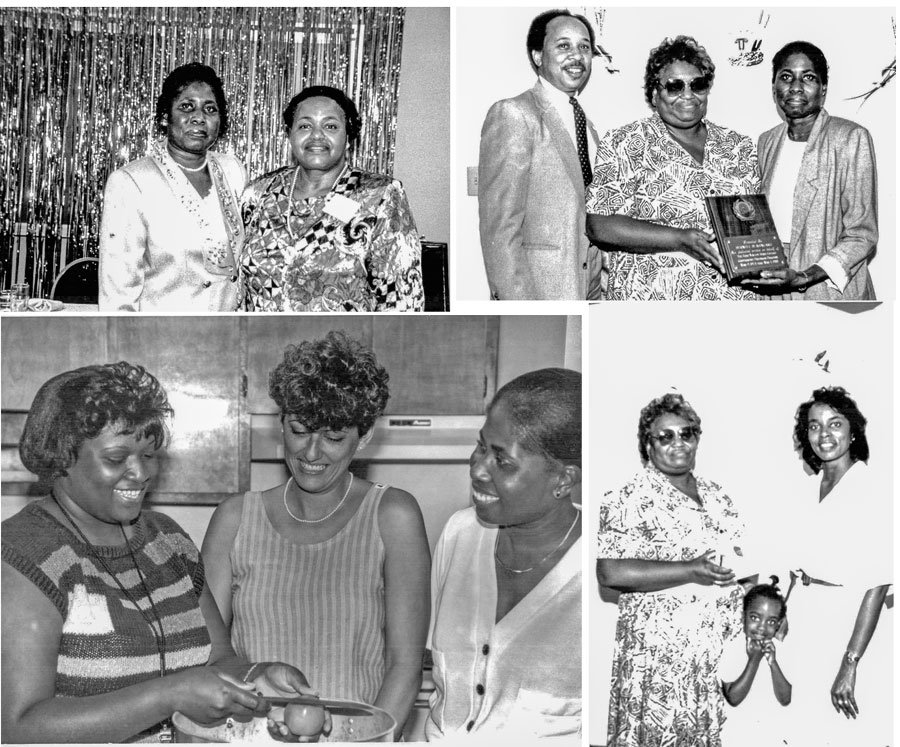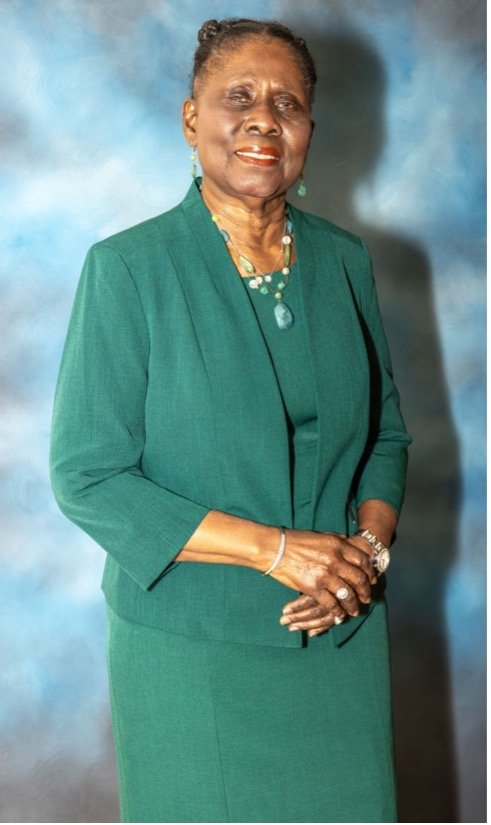Dr. Carol Ann Johnson, associate dean for Extension/Extension administrator, retired from Fort Valley State University in 2009.
Unbeknownst to many of her colleagues, Johnson was groomed for this role since childhood.
It all started in the low country of St. George, South Carolina with lessons from her mother that included cooking, canning, sewing, cleaning and decorating. By the time she matriculated to high school and began home economics courses, she recognized she had a head start.
“I realized how much my mother had taught me. I enjoyed doing the things that came easy. So, I knew by the time I finished high school, I wanted to become a home economist, or a family and consumer scientist,” Johnson said.
This interest grew more when she encountered her 4-H county Extension agent Bernice Brown.
“She was approachable. She knew her subject. She was a role model for me,” Johnson said. “She really showed me options for what I could do as a home economist.”
After graduating high school, Johnson set her sights on South Carolina State University, the 1890 land grant university in Orangeburg.
“That was the only university I applied to,” she said laughing. A few of her family members had attended, so she was familiar with the location and the opportunities available.
She selected home economics as her major with a concentration in foods and nutrition along with a minor in chemistry.
While matriculating at the historically Black college, Johnson met one of her mentors, Dr. Miriam Abernathy.
“Dr. Abernathy was a no nonsense professional. She knew her subject matter,” Johnson said.
Abernathy introduced her to the American Dietetic Association, which later changed to the Academy of Nutrition and Dietetics. She also encouraged Johnson to pursue a dietetic internship at Tuskegee University in Alabama. A dietetic internship exposes students to the therapeutic dietician profession, which focuses on working with doctors in hospitals to calculate diets for patients.
“I decided I did not want to go into therapeutics but wanted to stay in the administration part of dietetics,” Johnson said. Even though she did not pursue a career as a therapeutic dietician, she was able to live among 10-12 students from across the U.S. with various backgrounds.
“We studied together, took courses together and helped one another out,” she said, reflecting on her experience at Tuskegee. After completing her internship, Johnson continued her educational journey at Kansas State University (KSU).
At KSU she earned a Master of Science degree in institutional management and dietetics with a minor in business administration. After that, Johnson ventured south to attend Florida State University, where she earned a doctorate in home economics education with a minor in administration and higher education.
“That prepared me to continue to be in the area of leadership and administration where I could build and design programs,” she said.
After completing her doctorate, Johnson pursued work in various roles before she settled in education. She worked as a dietician in New Jersey and Kansas. She also worked as an Expanded Food and Nutrition Education Program (EFNEP) county Extension agent in South Carolina and a dietician for the U.S. Department of Agriculture (USDA) Food and Nutrition Services in Washington D.C.
However, she felt a calling to the field of education. As a result, she applied to the position of Extension program leader for family and consumer sciences at FVSU.
“When I got to Fort Valley State, I knew it was the perfect fit for me” she said.
At FVSU Johnson had the opportunity to maximize her work and educational experiences. These experiences helped her design programs and curriculum in teenage pregnancy prevention, college readiness and career preparedness, food safety and nutrition, and other facets of family and consumer sciences and agriculture.

One of her signature programs was TEAM Success. TEAM is an acronym for Teaching, Enlightening, Achieving and Mentoring. For six to eight weeks, high school students shadowed Extension personnel, county agents, and program assistants working for FVSU’s Cooperative Extension Program.
The program was developed to encourage high school juniors and seniors within the community to come to Fort Valley State University, learn about the College of Agriculture and be enlightened about different careers in the agricultural field. Students also received a stipend that ranged from $1,600 to $2,100.
“I think TEAM Success made a big impact on the students and on the family. When we show interests in children, parents show interest in us,” she said. “By bringing children into our family circle, treating them like family and showing parents that we want the best for them, we gained their support,” she said. Components of this program remain active in 2024.
Another program Johnson recalls that impacted the community was the teenage pregnancy prevention program.
“We wanted to help girls develop positive self-esteem. We wanted them to make good decisions that would impact them over the years and in their life,” Johnson said.
The retiree credits her colleague Dr. Irene Lee from the University of Arkansas Pine Bluff for FVSU’s work in the field.
“Dr. Lee developed a curriculum and training resources in teenage pregnancy prevention. She was able to help come train us and get us started over several years,” Johnson said.
In addition to writing curricula and administering programs, Johnson is also known for creating calendars.
“The calendar I did really focused on nutrition concepts. I was able to network and work with doctors in various locations. We got up to making and producing 45,000-50,000 calendars per year and distributing them throughout the counties,” she said. Some of these locations included doctor’s offices, churches and health departments.
Johnson recalls the support she received, and the relationships built with residents in the counties and the impact made through Extension programming. She credits the establishment of those relationships with being visible.
“You have to be out there; you have to love people. At that time our motto was ‘Helping people help themselves,’” she said.
Since retiring in 2009, the 75-year-old said she is blessed to have people who keep in touch with her. She spends her time now working in her church and spending time with her family, including siblings, nieces and nephews.
“Retirement works for me,” she said. “I’m just open to loving my church, my family, my friends. I’m blessed to be able to stand and talk, go about independently. I love it, and I am so thankful for that.”
Her time at Fort Valley is one she will never forget. She believes she made a lasting impact.
“I’d like to be remembered for my integrity, my humanity for caring for people. I’d like to be remembered for doing a good job, and doing the best I could,” she said.

